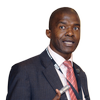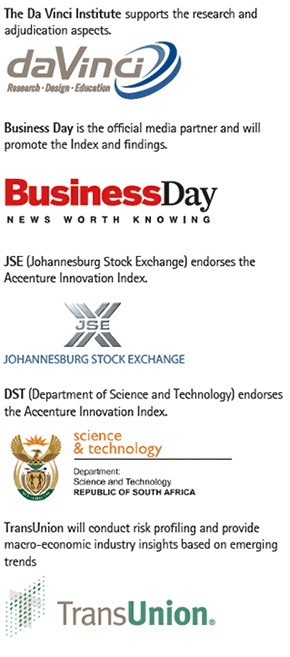Creating an innovation environment
by Roy Marcus,
2013-05-24 13:39:09.0
THE other day we were reflecting on the notion of what features distinguish a highly innovative organisation from those that just seem to be static? The response from most people in the group was focussed on the role which leaders play in creating an environment which is conducive to employees being able to use their creative talents to the betterment of the organisation.
The concept of intrapreneurialism, in which the organisation provides space for the so-called corporate entrepreneur, was highlighted as an important feature which prevails in these organisations. This then led to the inevitable reflection on Apple as an organisation, which is regarded by many as the epitome of a highly innovative corporation. The Apple model defies the common belief that a distinguishing characteristic of an innovative organisation is that leaders imbue a feeling of "trust" amongst employees.
Certainly the Apple leadership under Steve Jobs, as with a number of "successful" organisations, was managed by "fear". Apple under Jobs, as with a number of other corporations, was totally hierarchical with everyone knowing that the boss is always right. Now we need to reflect on the decline in Apple’s performance over the past few months and what would Apple look like now if Jobs were still alive? The real question is whether Apple’s decline would have been inevitable even if Jobs was alive thereby proving a much held belief that managing by fear has a limited life-span?
And so we need to watch the space, the race between Apple and Samsung which is not only about leadership and innovation but also about a fundamental philosophy around the product offering.
Apple appears to be smart in as much as it has its own very impressive operating system and a range of very smart hardware devices. Apple because of its seamless integration between devices, it grabs you to become completely Apple orientated for all your needs. Samsung on the other hand has very smart devices and relies on others for their operating systems. And whilst we are in a reflective mindset we need then to ask ourselves what has happened to Nokia and Blackberry? Once dominant players they are hardly in the race right now. This is why there is so much debate on the very notion of Innovation and this is why the Accenture Innovation Index will help us unravel these complexities.
Visit the Accenture Innovation Index website to enter or take the pulse survey for instant feedback.
• Prof Marcus is chairman of the Da Vinci Institute — a private university specialising in technology and innovation management and leadership.

Picture: THINKSTOCK
THE other day we were reflecting on the notion of what features distinguish a highly innovative organisation from those that just seem to be static? The response from most people in the group was focussed on the role which leaders play in creating an environment which is conducive to employees being able to use their creative talents to the betterment of the organisation.
The concept of intrapreneurialism, in which the organisation provides space for the so-called corporate entrepreneur, was highlighted as an important feature which prevails in these organisations. This then led to the inevitable reflection on Apple as an organisation, which is regarded by many as the epitome of a highly innovative corporation. The Apple model defies the common belief that a distinguishing characteristic of an innovative organisation is that leaders imbue a feeling of "trust" amongst employees.
Certainly the Apple leadership under Steve Jobs, as with a number of "successful" organisations, was managed by "fear". Apple under Jobs, as with a number of other corporations, was totally hierarchical with everyone knowing that the boss is always right. Now we need to reflect on the decline in Apple’s performance over the past few months and what would Apple look like now if Jobs were still alive? The real question is whether Apple’s decline would have been inevitable even if Jobs was alive thereby proving a much held belief that managing by fear has a limited life-span?
And so we need to watch the space, the race between Apple and Samsung which is not only about leadership and innovation but also about a fundamental philosophy around the product offering.
Apple appears to be smart in as much as it has its own very impressive operating system and a range of very smart hardware devices. Apple because of its seamless integration between devices, it grabs you to become completely Apple orientated for all your needs. Samsung on the other hand has very smart devices and relies on others for their operating systems. And whilst we are in a reflective mindset we need then to ask ourselves what has happened to Nokia and Blackberry? Once dominant players they are hardly in the race right now. This is why there is so much debate on the very notion of Innovation and this is why the Accenture Innovation Index will help us unravel these complexities.
Visit the Accenture Innovation Index website to enter or take the pulse survey for instant feedback.
• Prof Marcus is chairman of the Da Vinci Institute — a private university specialising in technology and innovation management and leadership.























Change: -1.59%
Change: -1.79%
Change: -1.88%
Change: -1.70%
Change: -1.62%
Data supplied by Profile Data
Change: -0.64%
Change: 0.12%
Change: -1.60%
Change: 0.00%
Change: 0.10%
Data supplied by Profile Data
Change: 0.73%
Change: -0.04%
Change: 0.78%
Change: 1.40%
Change: 1.28%
Data supplied by Profile Data
Change: 0.69%
Change: 0.82%
Change: 0.00%
Change: 0.50%
Change: 0.05%
Data supplied by Profile Data